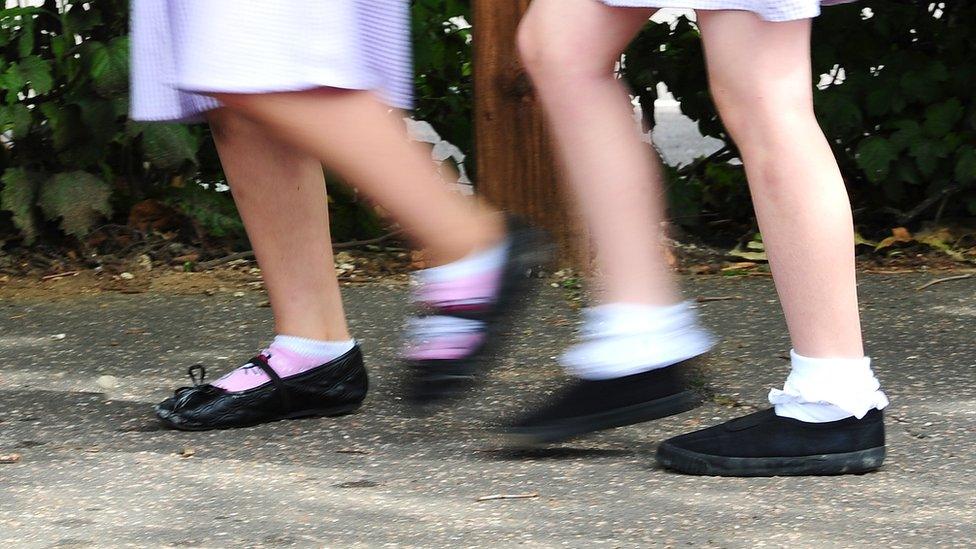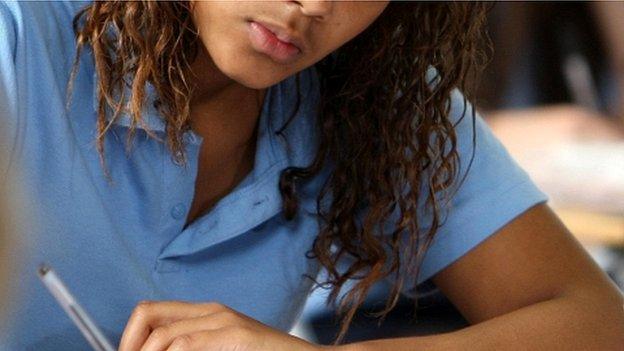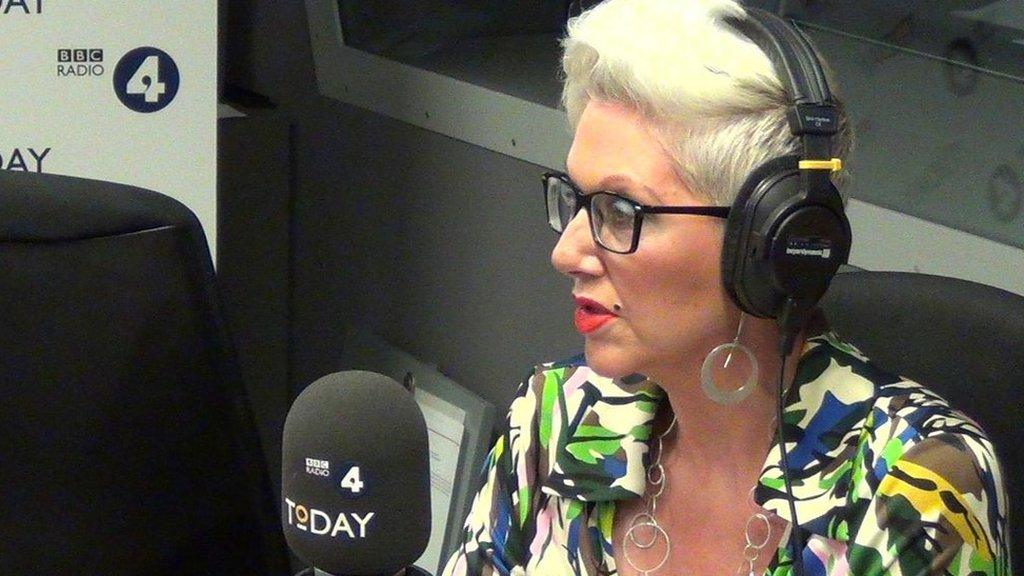Girls face huge quality of life difference across England
- Published

Middlesbrough was ranked as the worst place to be a girl in England and Wales
Girls growing up in parts of England have a much lower quality of life than others, according to analysis of official statistics.
Middlesbrough has been ranked the worst place for them to live, and Waverley in Surrey the best.
Researchers gave a score to 346 local authority areas based on child poverty, life expectancy, teenage pregnancy, GCSE results and youth unemployment.
Charity Plan International UK said inner-city areas performed the worst.
Girls 'being failed'
The report, produced in conjunction with the University of Hull, highlighted Middlesbrough, Blackpool, Manchester, Nottingham, Liverpool, Knowsley, Hastings, Hull, Salford and Sandwell as the worst places to be a girl.
For more stories from the BBC England data unit follow our Pinterest board, external
The best places were Waverley, Rushcliffe, Chiltern, Mole Valley, Epsom and Ewell, Rutland, Elmbridge, Wokingham, St Albans and East Hertfordshire.
Authors behind the report said girls across the UK "were being failed" and urged the Government to take "urgent action".
The report found girls were facing sexual harassment on a sometimes daily basis, while the pressure to have a perfect body and the growing problem of cyber bullying was piling additional burdens on to them.
The charity compiled the report as part of a campaign to tackle gender inequality. It said it focussed on girls because while they performed better than boys at school they were "subjected to high levels of violence", with one in five women reporting experiencing sexual abuse during their education.
'Failing obligations'
"Girls are facing harassment in schools, they don't feel safe online and they're scared every day on the street," said Plan International UK head of girls' rights, Kerry Smith.
"The UK is failing to meet its obligations to girls as set out in international human rights protocols and as things currently stand will fail to meet its obligations under the UN's Sustainable Development Goals.
"What is more, our study shows that a girl's life chances are tied to where she lives."
See how your area was ranked for girls' quality of life here, external.
Official figures showed that in Middlesbrough 67.1% of girls got 5 or more A*-C grades at GCSE in 2014-15, whereas in Surrey it was 77.8%.
Middlesbrough had 17% of all 18-year-olds not in education, employment or training in 2013, compared with 3.2% in Surrey.
Theresa May, the UK's second female prime minister, has pledged to tackle social exclusion and discrimination.
She has promised to make Britain a country that works for everyone "not for a privileged few" and has announced an audit into how race, gender and class affects how people are treated by public services.
Sex education
A government spokeswoman said: "We are committed to building a country that works for everyone - no girl should be held back in life just because of her gender or where she lives.
"We have given schools clear guidance on sex and relationship education and products to help them discuss body image with their pupils, so they can learn to respect themselves and others.
"Teenage pregnancy rates are at the lowest level for 40 years and we are driving down child poverty, with the number of children living in workless households at a record low.
"But we want to do more, which is why we are encouraging more young people, particularly girls, to study Stem (science, engineering, technology and maths) subjects and working to eliminate the gender pay gap."
- Published28 January 2016

- Published6 September 2016
